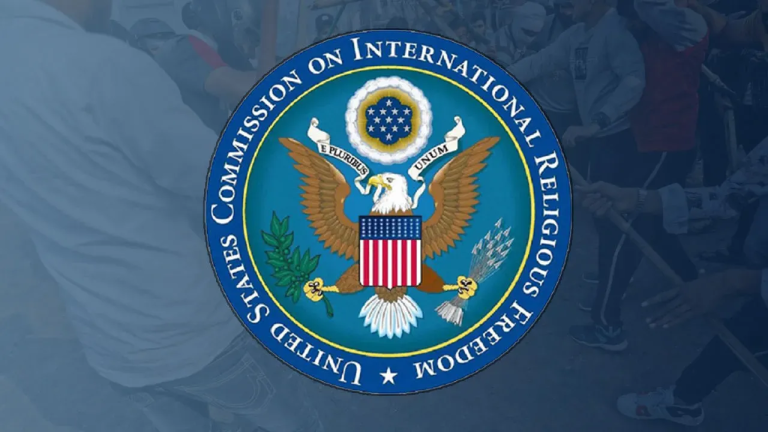USCIRF’s 2025 Report

- 30 Mar 2025
In News:
In its 2025 Annual Report, the United States Commission on International Religious Freedom (USCIRF) recommended designating India as a "Country of Particular Concern" (CPC), citing alleged systemic violations of religious freedom.
Key USCIRF Recommendations:
- Label India as a CPC under the International Religious Freedom Act (IRFA), 1998.
- Impose targeted sanctions on Indian institutions, including the Research and Analysis Wing (RAW), and individuals such as Vikash Yadav.
- Review bilateral defence agreements, including drone deals.
- Prioritise religious freedom in diplomatic dialogues with India.
- Reintroduce the Transnational Repression Reporting Act, 2024 to monitor global religious freedom violations.
About USCIRF:
- Established by: U.S. Congress (1998) under IRFA.
- Nature: Independent, bipartisan federal agency.
- Not affiliated with: U.S. State Department (but works in coordination).
- Structure: 9 Commissioners appointed by the U.S. President and Congressional leaders.
- Mandate: Monitor global religious freedom (FoRB), advise U.S. leadership, recommend sanctions, and publish annual reports.
Core Functions:
- Track global trends in freedom of religion or belief.
- Recommend policy actions including CPC designation.
- Advocate for religious prisoners of conscience.
- Maintain a FoRB Victims List and issue thematic reports.
India’s Official Response:
The Ministry of External Affairs (MEA) firmly rejected USCIRF’s report, calling it “biased and politically motivated.”
- MEA Spokesperson Randhir Jaiswal criticized the report for misrepresenting isolated incidents and ignoring India’s multicultural and pluralistic society.
- Highlighted India’s 1.4 billion diverse population, representing all major religions.
- Emphasized that USCIRF’s assessments reflect a deliberate narrative rather than genuine concern for religious rights.
- Asserted that such reports would not affect India’s image as a democratic and tolerant nation.
- Called for USCIRF itself to be recognized as an “entity of concern.”
